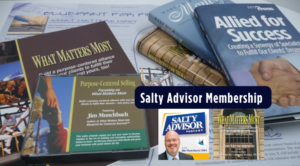First Memories of Money Family Interview
Our earliest interactions with money shape our financial habits and decisions in profound ways. Reflecting on these first memories of money can illuminate the subconscious influences guiding our current financial behavior.
This assignment invites you to explore your financial origins through a two-part exercise: recalling your personal money memories and conducting a revealing interview with a family member.
By understanding these foundational experiences, you can gain greater control over your spending and saving habits, ultimately leading to more mindful financial choices. Dive in to uncover the stories and lessons that have shaped your financial journey.
Table of Contents
-
The Assignment
First Memories of Money
Understanding your first memories of money can significantly impact your current financial behaviors and choices. This reflective exercise is designed to help you connect past experiences with present financial attitudes, providing greater control over your spending and saving habits. This guide will walk you through the process of recalling your first money memories and conducting a meaningful family interview to gain deeper financial insights.
Part One: Your First Memories of Money
Childhood Memories
Reflect on your earliest memories of money from childhood. Consider instances where money played a role in your life, such as receiving gifts, seeing family members handle money, or hearing conversations about finances. These early experiences can shape your perceptions and attitudes towards money.
Allowance and Early Earnings
Think back to when you first received an allowance or earned money through small jobs or chores. How did these experiences make you feel? What lessons did you learn about earning and managing money? These early interactions with money can influence your financial habits and attitudes today.
First Paycheck
Recall the moment you received your first real paycheck. How did you feel seeing your hard-earned money? How did you decide to spend or save it? This milestone often leaves a lasting impression and can impact your financial decision-making processes.
Impact on Current Financial Behaviors
Analyze how your early money experiences affect your current financial behaviors. Do you find yourself mimicking the financial habits of your parents or caregivers? Have your early lessons helped or hindered your financial decisions? Understanding this connection can lead to more mindful and informed financial choices.
Part Two: Family Interview
Preparing for the Interview
Choose a family member to interview about their financial experiences. Opt for someone you admire for their financial wisdom. Let them know why you chose them and express gratitude for their willingness to share their story.
Conducting the Interview
Approach the interview with respect and sensitivity. Money can be an emotional topic, and your interviewee might have regrets or strong feelings about their financial past. Be compassionate and patient throughout the conversation.
Questions to Ask
-
What is your first memory of money?
-
Which spouse was in charge of money in your marriage?
-
Did you discuss money before getting married?
-
What were the first few years of marriage like in terms of managing money together?
Summarizing the Interview
Write a brief summary (250-300 words) of what you learned from the interview. Focus on the impact of money management on the relationship between your interviewee and their spouse. Reflect on how their experiences and lessons can inform and improve your own financial life.
Conclusion
Connecting your first memories of money with your current financial behaviors is a powerful exercise in self-awareness and growth. By reflecting on your past and learning from your family’s financial experiences, you can make more informed and intentional financial decisions. This journey not only helps in managing your finances better but also in understanding the deeper emotional and psychological connections we have with money.
The Assignment
Part One: Your First Memories of Money
Part Two: Parental Interview

Complete Assignment 4 Quiz
-
Before you begin this week’s assignment, take the quiz at MoneyStudyGroup.com in Week 4
-
Pass the quiz with 80% or better
-
Grab a Screenshot
-
Paste a Screenshot in your article
Remember to submit One PDF Document for your Canvas assignment!
Part One: Your First Memories of Money
The purpose of this assignment is to connect your first memories of money with your current financial behaviors so that you can be more in control of your spending choices.
Directions for Part One:
What are some memories about money that come to mind . . .
-
when you were a small child?
-
when you earned an allowance or worked to earn money as a youngster?
-
when you earned your first real paycheck?
For each of these, what are some ways your experiences affect your attitudes and choices about money today?
On a scale of 0 (not at all) to 10 (incredibly well), how well did your parents model wisdom and responsibility about managing money? Explain your answer in a few sentences.
Whether you learned lessons about money from your parents because of them or in spite of them, what are some of those lessons? How did you learn each of them?
Does the exercises about your memories help you “connect the dots” between your past experiences and your present attitudes and actions regarding finances?
Here’s a video with a few stories About First Memories
Part Two: Family Interview
Interview someone in your own family, preferably a parent, aunt, uncle, or Grand Parent.
Note, this interview can be emotional for the person you choose to interview.
-
Be aware that you are going to be asking questions about money and how they managed money.
-
Often, people have regrets about how they managed (or mismanaged) money in their lifetime.
-
Be considerate and most of all be deeply respectful and compassionate and full of gratitude during this time with the person you choose to interview.
-
They are giving you a gift from their life that you can use to improve your life. Choose wisely whom you will interview.
-
Select someone you admire for what you perceive as wisdom
-
LET THEM KNOW THAT’S WHY YOU CHOSE THEM.
Use the following questions to open the communication during both of your interviews.
Questions about marriage and money:
-
What is your first memory of money? Maybe its your First Paycheck or the first memory about money that comes to your mind from when you were a young child?
-
Which spouse was “in charge” of the money in your marriage?
-
Did you discuss money before you got married?
-
What were the first few years of marriage like in terms of managing money together?
Write a brief summary report (between 250 and 300 words) describing what you learned after completing your interview. Feel free to do more than one interview if you like.
-
In your summary, explain what you learned about the impact of money management on the relationship between your interviewee and their spouse.
-
Be a thankful learner and let them know how much their story has helped you take important steps forward in your life.
-
If the interview becomes emotional (for you or for them) don’t be surprised. Handle their emotions (and your own) with compassion and courage.
-
You will be the one who directs this interview. It can be a boring, basic, waste of time, or it can be one of the most important interviews of your life – and theirs.
Remember to submit One PDF Document!
Class Collaboration:
In addition to the class collaboration item listed below, be sure to include a screenshot for this week’s class collaboration component(s) as outlined in this week’s Zoom Meeting.
Post your comment in Money Study Group, Facebook, or YouTube: If we were to meet 3 years from now, what would need to have happened in your life in order for you to feel good about your progress?








